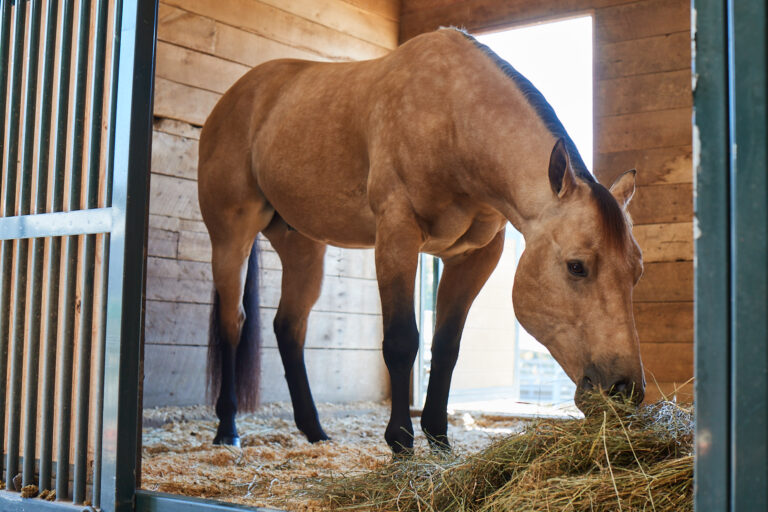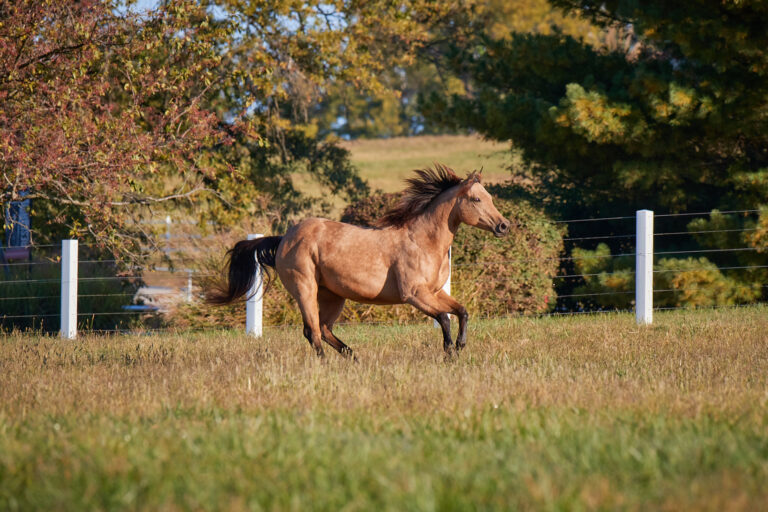 Credit: Thinkstock
Credit: ThinkstockWhat might seem obvious to you with regard to an aging horse’s health care needs is not necessarily as apparent to the horse’s owner. As our clientele ages, there is an assumption by many that because they are feeling terrific enough to spend time in the saddle and doing horse-related chores, their horses must be feeling just as eager and energetic for riding pursuits.
Studies have reviewed the differences between client perception and actual horse maladies, particularly in older horses. Unfortunately, horse owners get it wrong a lot of the time. For example, while only a quarter of horse owners feel their aged horses need dental care, with examination, veterinarians discovered that 96% of the horses were in need. One-quarter of owners noticed a lameness concern, while half of the veterinary exams identified a musculoskeletal problem. A little over one-quarter of horse owners observed foot issues, whereas 80% of the horses suffered from hoof problems.
So how do we manage aging horses and aging owners? You know the kind of person who might be a stalwart part of your practice: a middle-aged individual who has waited her (or his) whole life to own a horse. Now that the kids are grown and long since out of the house, that opportunity exists. This is the person who has set aside horse-inspired dreams and now can indulge as much as he or she wants due to available time, money and desire. The horse might become an extended child of sorts, and there is no limit to the pampering provided.
The Perils of Pampering
As we all know, equine pampering entails
• offering too many calories;
• feeding too many “sweets,” i.e., grain;
• a propensity to want to house the horse inside in a small area without fresh air or turnout to exercise and be part of a social herd;
• a propensity to put blankets on when it’s too warm, and failure to take them off when appropriate;
• scheduling the farrier too often for trims so that the feet get increasingly shorter and, eventually, sore.
These are just a few of the problems, but each profoundly affects the geriatric horse’s health.
Pressing Concerns
As we are aware, not all owners overpamper their horses. Yet even if the horse is accorded the appropriate care, there can be concerns that are related entirely to the aging process.
For the aged horse, weight control is probably one of the more significant concerns. If too thin, the horse develops problems with the immune system, energy and with general health. If too fat, the horse develops health issues related to endocrine abnormalities and laminitis. Part of the weight control paradigm involves monitoring the horse for pituitary pars intermedia dysfunction (PPID or Cushing’s disease). This can be done through regular clinical exams coupled with appropriate lab testing of ACTH using TRH stimulation response tests.
Nutritional management further relies on balancing nutrients. Older horses need more protein in their diets than the younger mature horse; instead of 9-10%, they may need 12-14%. Legume-based (alfalfa) feed puts a strain on aging kidneys to excrete excess calcium, while bran mashes add too much phosphorus to the diet. Periodic kidney and liver function testing might be appropriate. A horse with difficulty maintaining weight can receive added calories from fat supplements and beet pulp.
Older horses often spread out their food intake, eating more slowly and taking naps in between “meals.” This makes it necessary to educate an owner about the need for an aged horse to have feeding arrangements with compatible horses. If an older horse feels threatened by dominant horses at feeding time, he might tend to bolt his food, increasing the risk of choke, or he might move away from the feed and not get his share.
Dental concerns also factor into weight control management. Lack of teeth, loose teeth, abnormal wear patterns, periodontal disease or a painful mouth interferes with a horse’s willingness to chew. Food packed in between missing teeth can lead to gum disease or abscesses. A horse with dental issues might not eat enough to maintain good body condition. Difficulty in chewing can result in choke, impaction colic or diarrhea due to the swallowing of poorly masticated feed.
Parasite control and immunizations become even more important for the aging horse due to reduced immune function.
Foot concerns also need to be addressed. An owner might assume that a horse in light work or a retiree only needs infrequent trimmings. In reality, all ages of horses need their “pedicures” on a regular basis to avoid bruising and sore feet, broken hoof walls or hoof abscesses. Other clients might need to be counseled about getting their horses’ feet trimmed too often, which leads to bruised soles and lameness. Often an aged horse is fraught with multiple musculoskeletal issues related to a previous athletic career. Chronic pain becomes a quality-of-life issue and must be addressed. You must identify that the horse has a problem, determine an accurate diagnosis, then explain the therapeutic options that are available.
An aging horse also experiences changes in his muscles, with the back often dropping and less tone through the abdominal support muscles. This might necessitate adjustments to saddle fitting.
The exercise an elderly horse is asked to undertake also has to be considered. Creaky joints and aching muscles might take longer to warm up. An aged horse might also have to work harder at a task than a younger athlete, so his heart might pump at a higher rate and his core temperature might elevate more than in past years. The owner of an aged horse should be counseled in certain techniques (such as taking heart rate, rectal temperature, digital pulse, etc.) to monitor the horse’s recovery after exercise.
It’s All About Education
In most cases, a bit of explaining can go a long way. There are many methods that are useful for educating clients:
• Give educational seminars—AAEP has a variety of PowerPoint lectures already prepackaged and available for veterinarians’ use. Hands-on workshops are extremely helpful to demonstrate procedures that owners can perform to monitor their horses.
• Provide clients with brochures and article handouts.
• Refer them to appropriate Internet materials to read.
This information is best coming from you rather than from lay people or support therapists. This helps you control what clients hear and read as you provide them with sources of evidence-based information.
Aging clients are also quite aware of the need for more regular medical exams, so they would likely welcome twice-annual wellness exams. This gives you a chance to check in on their horses, while affording them a chance to ask questions. Regular wellness exams are important because they help you identify age-related issues early in the onset.
By marketing a Wellness Package, you can provide this service with a set fee to interested owners and include specific services that are performed once or twice a year. This enables clients to be invested in the process which, in turn, makes them less likely to let the wellness exams lapse.
Just as your dentist sends reminders to you about your annual teeth cleaning appointment, you can send a tickle reminder to your clients that it is time for a wellness exam.
Take-Home Message
As your clients’ horses age, the clients themselves are also adding on years. Often this longevity means they have developed a strong working relationship with you. You are the trusted medical practitioner to whom they turn for advice and information.
Making the extra effort to educate clients about what can be done for the aging and geriatric horse is an excellent platform for preventive care. The horses will stay robust longer, with an improved quality of life, and your clients will thank you for it.









